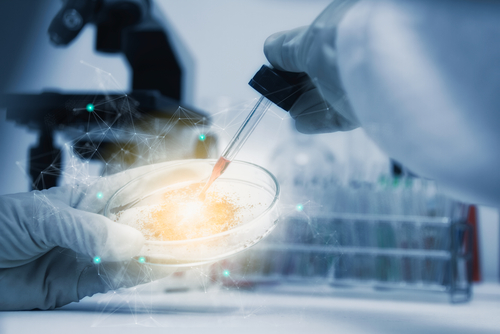Stem Cell Treatment Benefits Three-fourths of MS Patients in Phase 1 Trial
Written by |

A stem cell treatment improved the neurological symptoms of three-fourths of the multiple sclerosis patients in a Phase 1 clinical trial, New York researchers reported.
The results prompted the team at the Tisch MS Research Center of New York to start a Phase 2 trial to further assess the therapy’s safety and effectiveness.
Injecting mesenchymal stem cell-derived nerve cell progenitors directly into the spinal canal also improved the muscle strength and bladder function of many of the 20 progressive MS patients.
The study, “Phase I Trial of Intrathecal Mesenchymal Stem Cell-Derived Neural Progenitors in Progressive Multiple Sclerosis,” was published in the journal EBioMedicine.
Eighty percent, or 16, of the patients in the open-label trial (NCT01933802) had secondary progressive MS.
Half were unable to walk at the beginning of the study, and had EDSS disability scores of 7 or higher. Eight required assistance to walk, and had EDSS scores of 6 to 6.5. Two were able to walk without assistance, with EDSS scores between 3.5 and 5.5. EDSS stands for Expanded Disability Status Scale.
The stem cell treatment led to improvements in 15 of the 20 patients’ neurological symptoms. The disease of two worsened, and the condition of three remained the same.
Fourteen of the patients had better muscle strength after the treatment, mainly in the lower limbs. Four of the 10 patients who were able to walk when the trial began improved their scores on a measure of exercise capacity — the timed 25-foot walk test — by 20 percent or more. And two patients who had been unable to walk when the study began were able to complete the walk test with assistive devices.
Patients who responded to the treatment improved their disability scores by 0.5 to 2.0 EDSS points
The stem cell treatment improved the bladder function of half the patients with a problem. Some were able to stop taking their bladder medications.
There were no serious adverse effects associated with the therapy. About 85 percent of the patients experienced headaches and fever in the first 24 hours after the treatment, which doctors managed with standard medications.
The treatment consisted of three injections of stem cells derived from the patients, administered three months apart. Patients received antibiotics to reduce the risk of infection.
Researchers used fresh cells rather than cells preserved by refrigeration. This may have contributed to the good results, they said.
“The protocol we created allowed for delivery of these stem cells within 30 minutes of harvesting” them, Dr. Violaine Harris, a senior research scientist at the Tisch center, said in a news release.
The Phase 1 results “justify the initiation of a planned FDA-approved Phase 2 trial in a larger group of patients,” said Dr. Saud A. Sadiq, the Tisch center’s director and senior author of the study.
“We anticipate that these novel studies may form the therapeutic basis of reversing disability in patients with MS, and if successful, these studies could have positive implications for treating other neurological diseases,” Sadiq added.
The Phase 2 trial (NCT03355365) is recruiting about 50 patients with primary progressive or secondary progressive MS. Patients must have an EDSS between 3 and 6.5. For additional information, visit the trial registry webpage.


